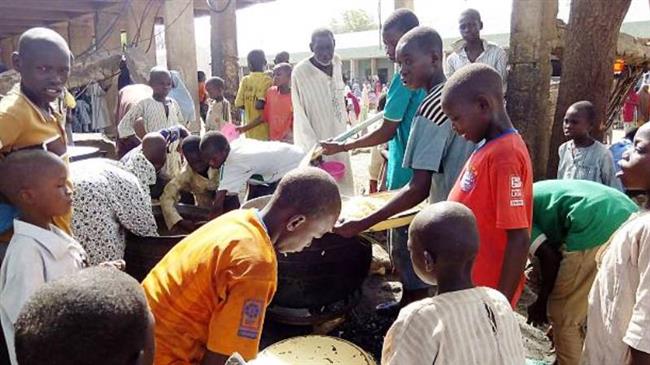UN says 500,000 malnourished kids around Lake Chad facing death
The United Nations has said that half a million severely malnourished children around Africa’s Lake Chad need life-saving assistance, but warned funding for humanitarian aid in the region was dramatically low.
The top UN aid chiefs for the countries straddling the lake — Nigeria, Niger, Chad and Cameroon — told reporters in Geneva that funding was desperately needed.
Nearly a decade after the insurgency by Boko Haram extremists plunged first Nigeria and later its neighbors into chaos, the security and humanitarian crises in the region remain “severe,” said Bintou Djibo, the UN humanitarian coordinator for Niger.
Some five million people are acutely food insecure, while around half of the children under the age of five in the region — 490,000 in total — are suffering from acute, severe malnutrition, according to UN numbers.
“Without treatment, they risk death,” Djibo said.

At the same time, some 2.4 million people have been displaced by conflict and food insecurity, with millions facing the risk of killings, kidnappings, rape and other abuses.
In Nigeria, where at least 20,000 people have been killed since the Boko Haram insurgency began in 2009, “we are dealing with a major protection crisis,” said Edward Kallon, the UN humanitarian coordinator for the country.
Despite military successes scored against extremists, he warned that Boko Haram “is still a potent force.”
More than 1,000 children in northeastern Nigeria have been abducted by armed groups since 2013, and in the past year many have been forced to carry out attacks with explosives strapped to their bodies.
Kallon said 160 women and children had been used as “human bombs” since January 2017.
At the same time, he said the extremists still control enclaves, with about 930,000 people inside that “are not accessible to international aid workers.”
He estimated that up to 200,000 people had left such enclaves, saying many were “extremely malnourished.”
Overall, Kallon said, 1.6 million people are internally displaced inside Nigeria while nearly one million people are acutely malnourished.
The UN is seeking $1.5 billion (1.27 billion euros) to fund humanitarian aid operations in the region around Lake Chad this year, but so far it has received only a third of that amount.
“Low funding means cutting of food rations, lack of basic social services, health, education, sanitation facilities,” Kallon said.
Lacking aid can also force vulnerable people into “negative coping mechanisms” like selling sex or joining insurgents, he warned.
“Youths are the most at risk, and they are also … the ones Boko Haram is out there to create alternative livelihoods for,” he said.
(Source: AFP)





